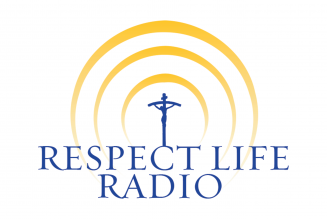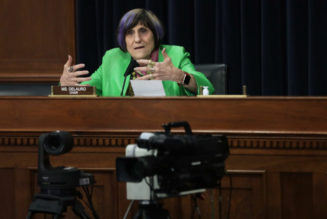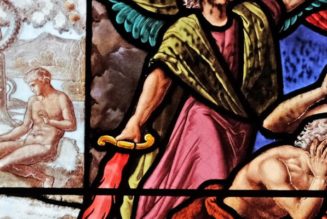 A recent analysis by the Pew Research Center shows the rather unsurprising fact that sermons at Catholic masses are much shorter than those at Protestant and Evangelical services. The Catholic News Agency reports:
A recent analysis by the Pew Research Center shows the rather unsurprising fact that sermons at Catholic masses are much shorter than those at Protestant and Evangelical services. The Catholic News Agency reports:
An analysis of nearly 50,000 sermons, given across a variety of Christian denominations during the months of April and May this year, found that the median length of a sermon was 37 minutes, but for Catholic priests, the average length was just 14 minutes.
Pew found that historically black Protestant sermons had the longest median length of 54 minutes, while mainline Protestant sermons were an average of 25 minutes long, with evangelical churches falling in between at 39 minute [sic] per sermon (CNA).
Catholic clergy are generally considered to be poorer preachers than their Protestant counterparts, and I would argue that the shorter sermon length has something to do with that. The expectation that a sermon be brief, about twelve minutes, affects what is said and how it is said. It also makes a number of forms of preaching, some of them among the most satisfying for the congregation, impossible.
Some years ago, a brother priest asked one of his parishioners who had left for a large Protestant denomination why he had done so. “They teach the Word,” was the man’s answer. We can certainly lament that the man would not have left the faith had he understood the True Presence of Christ in the Eucharist, but people also have a hunger for God’s Word effectively taught and presented. For this reason, a good sermon deeply rooted in a biblical text is very satisfying. Long before I was ordained a priest, I listened to recordings of Protestant preachers like Adrian Rogers and Tony Evans. I marveled at how these men could take a text and teach from it line by line, creatively applying it to life. Even if I did not agree with every point they made or thought that they missed something that a Catholic would see, they saw the text as full of meaning and served up rich spiritual fare for their listeners.
Archbishop Fulton Sheen had this ability, too. He’d find a crucial point most others would miss and develop it beautifully. I remember once he noted that the disciples had forgotten to bring bread with them on the boat and emphasized the detail in the text that said, “They had only one loaf with them in the boat.” With the authority that only Sheen could command he proceeded to say, “And the loaf was Christ, who alone is our necessary Bread.” From this insightful teaching he went on to develop four aspects of it.
This sort of teaching and preaching takes time. I would argue that the relative inferiority of Catholic preaching isn’t just that Catholic clergy are poorly trained; it is also the limited time tolerated by the faithful. With such an abbreviated length, Catholic sermons tend to present a single principle drawn from the readings without being able to fully develop it. Good biblically based preaching usually involves going through a passage in the following steps: read it, analyze it, organize it, illustrate it, and then apply it. This sort of preaching isn’t likely to happen in a twelve-minute homily.
I also am told by many Catholics that priests need to teach more from the pulpit. There is a very long list of topics that they want to hear preached about more. I would argue that this also requires more than a mere twelve minutes.
I do not say that every member of the clergy should preach longer. Some simply don’t have the skill to do so. Others are in situations were a longer sermon is not possible due to the overall Mass schedule. There are also going to be ethnic/racial differences that factor in. So, neither do I argue that longer sermons teaching in depth out of a biblical text should be used in all situations. However, I do argue that if they want the “better” sermons of the denominations noted for excellent preaching, more Catholics might want to consider tolerating a longer sermon, at least at certain Masses.
I have spent most of my priesthood in predominantly African-American parishes. In such congregations, longer sermons are assumed. The people have high expectations of the sermon; they also interact with the preacher through encouraging interjections such as “Amen” and “All right now.” In these settings I routinely preach about thirty minutes; it is a great luxury. This permits me to preach through a biblical text examining its stages or exploring several aspects of the teaching it sets forth. Most of you who read my Sunday sermons posted here or listen to them online know this. One sermon might cover four aspects of discipleship derived from a Gospel pericope. Another might explore the stages of faith the man born blind goes through in the Gospel of John. Most of my parishioners would be surprised if I gave a ten-minute sermon, wondering what had happened. Once when I gave a short sermon a woman playfully rebuked me, saying, “Father, you left too much fruit in the tree this morning. We need a better harvest next week.”
Some Catholics have told me that they think long sermons are a mistake no matter who is in the pulpit because the purpose of the Mass is not to be a glorified bible study; it is an act of worship. Perhaps, but isn’t the Lord being worshipped when the faithful are attending to His proclaimed and preached Word with devotion?
Over the years, I have found that people have pretty strong opinions about sermons, both length and content. I suppose the best way for me to end this piece is by saying that perhaps we can all make a little room for one another in the Church. Some priests preach longer and are good at it. Some are not and better off keeping the sermon short and to the point. Other priests preach brilliant, memorable homilies that are quite brief. Vive la différence! Even in my own parish, not every liturgy is the same: our 11:00 AM Mass runs well over an hour, while our 7:00 PM Mass is no longer than forty-five minutes. Hence, in my own sermons, both content and length vary.
The one thing that is most clear to me is that rigid declarations that no sermon should be longer than a certain number of minutes (8, 10, 12, or whatever) are disrespectful of legitimate differences across cultures, liturgical traditions, and even personal temperaments. Pastors and congregations can and should work out their own situations and provide variety even there. Live and let live.
This sermon clip shows that, when I have to, I can preach in under four minutes. This was a half-hour TV Mass and only four minutes for the sermon is allotted. I certainly don’t consider it one of my better efforts and would liked to have developed the possibility that St. John did have supernatural grace. But all that one can do in so brief a moment is to throw out a few thoughts and exit gracefully. In my written online sermon I developed, in three stages, going from the imperfect gift we merely want to the perfect gift that God is actually offering. In my recorded parish homily, given the generous time allotted in that setting I was able to sample well from the Prophets as well as the Gospel text itself.
[embedded content]








